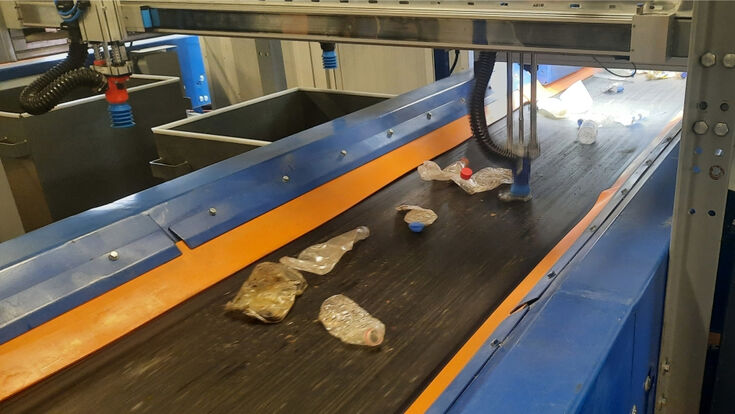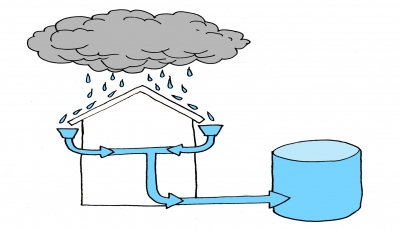Comprehensive Solutions for Industrial Waste Water Treatment by Reclaim Waste Melbourne
Comprehensive Solutions for Industrial Waste Water Treatment by Reclaim Waste Melbourne
Blog Article
Fostering Source Efficiency and Environmental Management Through Fluid Waste Elimination Programs
In the realm of ecological stewardship, the monitoring of liquid waste stands as a crucial point where resource efficiency and ecological defense merge. Through a lens of proactive engagement and calculated insight, the landscape of fluid waste monitoring introduces a tapestry of challenges and possibilities that beckon us to explore the path towards a greener and more sustainable future.
Relevance of Fluid Waste Elimination
The significance of liquid waste removal hinges on its critical duty in preserving environmental health and protecting public wellness. Liquid waste, if not correctly managed, can position severe risks to ecosystems, water sources, and human health. With reliable removal procedures, harmful materials such as pathogens, chemicals, and toxins are prevented from infecting the atmosphere and triggering detrimental results.
Correct liquid waste elimination additionally assists in avoiding the spread of diseases and lowering the capacity for groundwater contamination. By safely dealing with liquid waste, the danger of waterborne diseases and pollution-related health concerns is substantially minimized - Liquid waste removal. Furthermore, effective elimination practices add to preserving the total tidiness and visual appeals of areas, thus boosting the high quality of life for homeowners
Moreover, liquid waste elimination plays a vital function in supporting sustainable growth and guaranteeing conformity with environmental guidelines. By sticking to correct waste management services, sectors and protocols can minimize their ecological impact and demonstrate corporate obligation. Eventually, purchasing durable fluid waste elimination programs is important for promoting environmental stewardship and promoting a much healthier, more secure future for all.

Benefits of Effective Disposal
Efficient disposal of fluid waste not only safeguards ecological health and public health but additionally yields many advantages that prolong past instant containment measures. One crucial benefit of effective disposal is the decrease of pollution in water bodies and soil. By effectively handling fluid waste, the threat of contamination decreases, maintaining communities and guarding biodiversity. Additionally, effective disposal techniques add to resource conservation. With procedures like recycling and energy recuperation, beneficial resources can be drawn out from liquid waste, advertising sustainability and lowering the strain on basic materials. Embracing effective disposal techniques can lead to set you back financial savings for organizations and areas. By optimizing waste management processes, organizations can streamline operations, minimize disposal expenses, and potentially generate revenue through the sale of recycled products. On the whole, the advantages of reliable fluid garbage disposal are diverse, including environmental management, resource efficiency, and economic benefits.
Technologies for Waste Treatment
Utilizing sophisticated technologies for waste therapy plays an important role in guaranteeing the reliable administration and risk-free disposal of liquid waste. One of the key modern technologies used in fluid waste treatment is organic therapy. This technique utilizes microbes to damage down raw material in the waste, transforming it into harmless results. One more common modern technology is chemical therapy, where chemicals are contributed to the waste to counteract unsafe elements or precipitate contaminations for removal. Physical therapy techniques, such as filtration and sedimentation, are additionally commonly used to divide solids from liquid waste.
Advanced oxidation website link procedures (AOPs) have gained popularity for their ability to break down persistent natural contaminants in fluid waste with the generation of very reactive useful source hydroxyl radicals. Membrane layer modern technologies like reverse osmosis and ultrafiltration are efficient for separating pollutants from fluid waste streams. Furthermore, thermal therapy methods such as incineration can be utilized for the full damage of hazardous elements in fluid waste. Overall, the combination of varied treatment innovations makes certain environmentally pleasant and thorough management of liquid waste.
Role of Regulations and Compliance
In the realm of liquid waste management, adherence to regulative frameworks and compliance requirements is extremely important for safeguarding environmental health and sustainability. Regulations play a critical duty in governing the appropriate handling, therapy, and disposal of fluid waste to stop damage to environments and human health and wellness. By developing clear guidelines and standards, regulatory bodies ensure that services and people entailed in fluid waste administration operate in an environmentally responsible fashion.
Conformity with these guidelines is not only a legal need yet likewise an honest obligation to shield the setting for future and current generations. It involves applying finest practices in waste collection, disposal, transportation, and therapy to lessen environmental influence and promote source effectiveness. Non-compliance can result in penalties, legal activity, and reputational damage for companies, highlighting the value of supporting governing requirements.

Future Trends in Waste Management

One more crucial trend in waste administration is the fostering of innovative information analytics and expert system to optimize waste collection courses, boost sorting procedures, and enhance general operational performance. These technologies allow waste management firms to make data-driven choices, resulting in cost savings and environmental advantages.
Moreover, there is an expanding focus on the advancement of decentralized waste monitoring systems, such as onsite therapy facilities and mobile waste processing systems. These systems provide adaptability and scalability, permitting extra efficient waste handling in varied atmospheres.
Final Thought
In final thought, cultivating resource effectiveness and ecological security with fluid waste elimination programs is important for sustainable growth. Efficient disposal approaches, advanced modern technologies for waste treatment, and strict guidelines play essential duties in reducing ecological effect. Looking in advance, constant innovation and enhancement in waste management methods will certainly be vital for addressing the expanding challenges of liquid garbage disposal.
In the realm of ecological stewardship, the monitoring of fluid waste stands as a crucial time where resource effectiveness and ecological protection assemble (Reclaim Waste Melbourne).Making use of advanced innovations for waste therapy plays a crucial function in making certain the effective administration and risk-free disposal of fluid waste.In the realm of liquid waste administration, adherence to governing structures and compliance standards is vital for guarding environmental health and wellness and sustainability.In final thought, cultivating source efficiency and environmental protection with liquid waste elimination programs is critical for lasting development. Looking ahead, continuous development and renovation in waste administration methods will be vital for resolving the expanding challenges of liquid waste disposal
Report this page